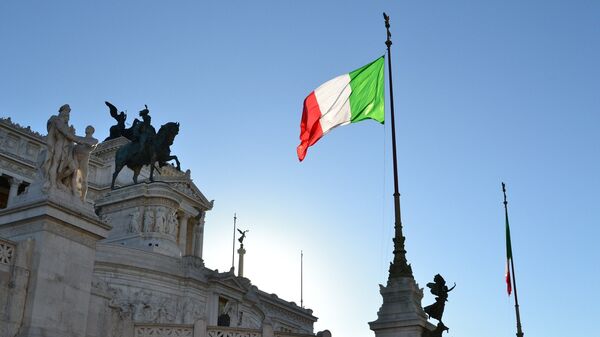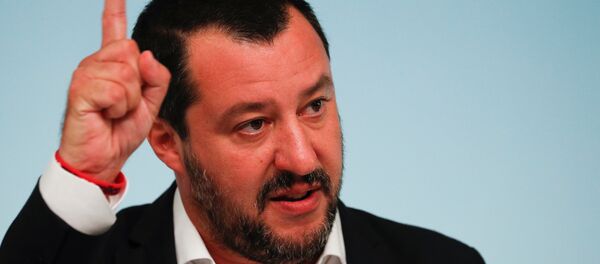Sputnik has discussed this with Andrea Trunzo an International Consultant working for a Global Consultancy in Innovation and Technology.
Sputnik: What do you feel will be the possible ramifications for Italy given the country not complying with the EU demands for Italy to outline its objections to its budget contribution?
Andrea Trunzo: I see multiple ramifications in terms of stability, resilience of the government, support for the government by the public, also changes in the Italy-Germany bonds spread and possibly the outcome of the excessive deficit procedure. I think that in the short-term nothing can really happen for one reason, the procedure, the EU procedure is quite long. At this point in time, the government is quite stable.
READ MORE: Italy's Flight From Eurozone Would Be Liberation, Not Punishment — Eurexit Chief
Because that is among other things sort of an indicator of the level of risk and can show if the markets are fundamentally uncomfortable with the decision made by the Italian government. So in that case, if the government is unable to keep the spread under control, if it goes out of control over the next month that can be a game changer. That can push the government toward a revision of the budget.
Sputnik: Now, it's, obviously, a very difficult, stressful situation for the European Union and Italy given the fact that Italy is the 3rd largest economy in the Union. The EU has also got the additional woes, trials, and tribulations with the ongoing Brexit negotiation, also the most severe element of stress is the immigration problem that's encompassing the European Union member states as well, but this particular situation is almost a game of power, so to speak. The rest of Europe is looking on with interest, can there be a compromise to suit both parties because what is surely needed is a compromise in this particular situation, given the power of the economic position and it being the third strongest economy in the European Union?
The truth is, at this point in time it is not really what is the expectation of the government. The party leaders have been vocal against the European Union. The Treasury Minister is much more pragmatic and accommodating. The budget itself is based on a good degree of optimism, but it is not as populist as it may seem at first glance. They acknowledged in the budget that there are headwinds. So they seem to some extent less confrontational than has been reported so far in the media.
READ MORE: 'This is Democracy': US Ambassador to Rome Praises New Eurosceptic Italian Gov't
Now the point is, I believe, again, in the short-term nothing can really happen. If there is a worsening of the economic conditions and therefore the government believes that the target cannot be met and something else must be done, at that point in time something can happen, but if not, that's impolida. First of all, because it takes months for some of the measures in the budget to deliver effects.
The picture of the economic situation in Italy is a bit mixed and that's the reference for the budget. At the same time, we mentioned both Eurozone and the EU, that's not exactly the same. So far the Italian government has addressed the budget as a specific issue with the EU, but that's not the only dossier they have on the European Union tables. There's immigration, there is a common consolidated corporate tax base, there is the reform of Frontex, the border force, and that affects immigration which is an important topic for the coalition in Italy. There is, above all, the EU multinational financial framework.
READ MORE: Italy's Salvini Roasts EU Finance Chief Moscovici for 'Little Mussolinis' Remark
I don't have any evidence that they want to turn a specific battle into a major war with EU at this point in time, but that's something that can change as we approach the EP elections in May.
The views expressed in this article are solely those of Andrea Trunzo and do not necessarily reflect the official position of Sputnik.








